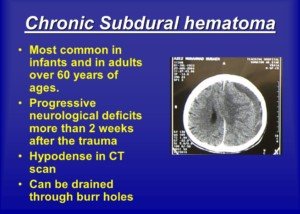
Delirium in elderly hip fracture patients after surgery is so common, don’t be surprised if your senior age mother suffers from this after the operation.
And if you’ve never seen your elderly mother (or father) in a delirious state post-op, then the delirium following a hip fracture surgery may be quite unsettling to witness.
Do not equate hip fracture and its immediate surgery with an elective hip replacement (where there’s no trauma to the body) that may be scheduled a few weeks out in advance.
How common is post-surgical delirium in an elderly hip fracture patient?
“It is fairly common, and can be mitigated by knowing the causes, prevention and awareness,” says Barbara Bergin, MD, board certified orthopedic surgeon at and co-founder of Texas Orthopedics, Sports & Rehabilitation Associates.
One study found it to be 48%. The University of Toronto study says that older people are at high risk for developing delirium during their hospitalization for hip fracture.
When my mother was 89 she fell and fractured a hip. I spoke to her over the phone while she was in the hospital prior to surgery, and already she was mildly impaired cognitively.
It’s not unheard of for delirium to occur in elderly hip fracture patients before the corrective surgery.
My mother’s surgery was scheduled for the next day, and I anticipated the delirium — because five years prior to that, she had exhibited a lot of cognitive issues after her coronary bypass surgery.
And boy was my prediction dead-on: The delirium after the hip surgery was pronounced — full-on. She was minus any capability of logic or rationale.
An example was that she kept asking over and over why she had to have a catheter, and despite multiple people explaining why, she kept asking why and demanding it be taken out.
At one point she thought she was at home, and thought that a table in her hospital room was the desk that’s in her kitchen.
She was also interacting with a TV show, as though it were interacting with her.
For those who don’t anticipate this bizarre change in cognition, it will whack them hard, because it will seem like it’s permanent.
Family members need to be warned of this common outcome. I’m warning you, the reader, in case you’re here because an elderly loved-one is scheduled for hip fracture surgery later today or tomorrow.
Do Not Panic at the Delirum
As bad as it will be — it’ll probably wear off over time (it won’t vanish overnight, as though flipped off like a light switch).
I say “probably” because a lot of that depends on how high functioning your senior-age family member was before the injury.
My mother was cognitively normal and fully functioning prior to the fall.
The Toronto study noted that the mental confusion was far more common in the older of the study subjects (mean age 85).
Every nurse and doctor I spoke to about the delirium said something like, “Oh, it’s just the anesthesia; it’ll wear off; we see this ALL the time; it’s very common.”
Reasons for Delirium in the Elderly Following Surgery

Freepik.com, jcomp
“There are many reasons for delirium/mental status changes in the elderly after hip fractures, or any surgery/hospitalization,” says Dr. Bergin.
“They might already have mental status changes brewing, which are exacerbated by the injury, the surgery and stress.
“Anesthesia and pain medications can cause a delirious state following surgery. This is complicated and influenced by many factors.
“Just the fact that the patient is usually lying in bed can cause a change in their mental status.
“Patients can develop a form of delirium known as ‘sundowner’s syndrome,’ during any hospitalization in which their normal circadian rhythm is disrupted, and there is a change in their normal environment and the behavior of those around them.
“Patients who habitually drink alcohol might suffer a form of mental status change, called delirium tremens, due to alcohol withdrawal. Back when I was in my training, we kept beer on the floor to prevent the DTs, rather than treat this serious problem once it occurs!
“Infections can cause mental status changes.
“Some medications, or the failure to take regular medications can cause mental status and behavioral changes.
“Physiological problems, such as electrolyte imbalance or poor oxygenation. can cause delirium.”
Remember, a hip fracture is a major jolt to an elderly, weak body, and the ripple effect of this trauma, plus the invasive surgery and the drugs involved, all create a rippling shock effect throughout the entire body, including the brain.










































